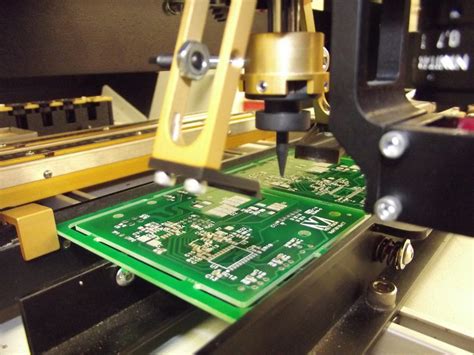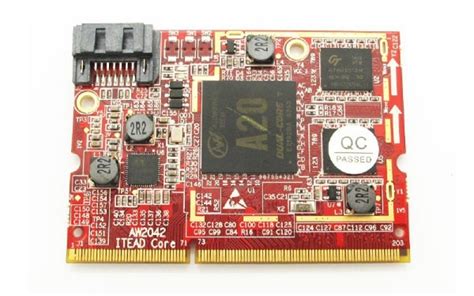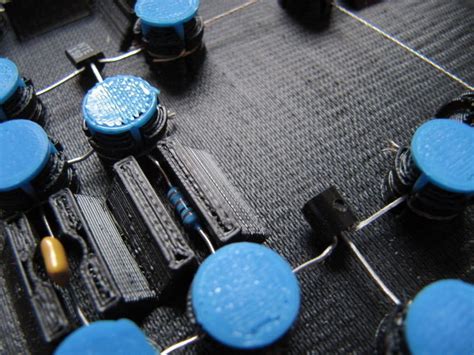Unlocking Efficiency: The Advantages of Contract PCB Assembly
Key Takeaways
In the rapidly evolving landscape of electronics manufacturing, contract PCB assembly offers significant strategic advantages that can redefine operational efficiencies for businesses. By opting for contract assembly, manufacturers can leverage specialized expertise that enhances the quality of their PCBA processes. This not only leads to improved production standards but also minimizes the risk of errors that can arise in-house. Furthermore, outsourcing PCB assembly allows companies to focus on their core competencies while enjoying scalable solutions tailored to their specific needs. The capacity to adapt quickly to market demands without incurring substantial overhead costs is a key benefit for many. Additionally, when partnering with established assembly providers, there is a greater assurance of procurement reliability and access to advanced technologies that might otherwise be unattainable. Ultimately, choosing contract PCB assembly positions manufacturers to achieve heightened competitiveness along with an unmatched ability to respond efficiently to the shifts within the market landscape.
Introduction to Contract PCB Assembly
In the rapidly evolving landscape of electronics manufacturing, contract PCB assembly has emerged as a pivotal strategy for companies aiming to maintain competitiveness. This approach involves partnering with specialized firms for Printed Circuit Board Assembly (PCBA), which can lead to significant improvements in operational performance. By outsourcing the pcb assembly process, manufacturers can focus their resources on core competencies such as design and innovation, while leaving the complexities of assembly to experts.
Notably, this partnership allows companies to benefit from advanced technologies and skilled labor without incurring the high costs associated with in-house production. A survey conducted by industry experts reveals that nearly 70% of organizations have seen enhanced efficiency and productivity in their operations after switching to contract services for their pcba needs.
| Benefits of Contract PCB Assembly | Description |
|---|---|
| Access to Expertise | Leverage specialized skills and knowledge |
| Cost Efficiency | Reduce labor and operational costs |
| Flexibility | Scale production as needed without constraints |
| Improved Focus | Concentrate on design and innovation |
Outsourcing pcb assembly presents a strategic advantage in an era where time-to-market is crucial. Companies can respond faster to customer demands and market changes by utilizing the production capabilities of these contracted firms. With streamlined processes and quicker turnaround times, businesses gain a competitive edge that is essential for success in today’s market.
“In outsourcing PCB assembly, companies not only achieve cost savings but also gain access to cutting-edge technology that enhances overall production quality.”
This synergy of resources through contract assembly not only addresses immediate manufacturing challenges but also contributes to long-term growth objectives by fostering innovation and adapting quickly to industry trends.
Enhancing Efficiency Through Outsourcing
Outsourcing PCB assembly through contract services can significantly boost operational efficiency for manufacturers. By leveraging the expertise of specialized companies in PCBA, businesses can streamline their manufacturing processes and focus on core competencies. This strategic move allows organizations to allocate resources more effectively, as they are freed from the complexities of managing in-house production lines. Additionally, contract PCB assembly services often utilize advanced machinery and techniques that might be cost-prohibitive for smaller firms to acquire independently. By employing such specialized resources, companies can enhance their production speed and quality, resulting in a more agile response to market demands. Furthermore, outsourcing enables manufacturers to tap into a global talent pool, ensuring that they benefit from the latest industry innovations and best practices in PCBA. Ultimately, this shift not only improves productivity but also positions companies to remain competitive in a rapidly evolving market landscape.
Cost Reduction Benefits of Contract PCB Assembly
One of the most compelling reasons for manufacturers to consider contract PCB assembly is the potential for significant cost reduction. By outsourcing PCBA processes, companies can eliminate expenses associated with maintaining in-house production facilities, such as labor costs, equipment acquisition, and maintenance expenses. This shift often leads to lower overheads and improved budget management. Additionally, when companies delegate PCB assembly to specialized contractors, they benefit from economies of scale that these suppliers can offer. These contractors usually have optimized workflows and established supply chains that contribute to reducing material costs. Moreover, the expertise and experience of these external providers can result in faster turnaround times, minimizing production delays that may lead to lost revenue. With reduced lead times and the ability to allocate resources more efficiently, businesses can redirect funds towards innovation and development initiatives. Ultimately, embracing contract PCB assembly is a strategic decision that allows manufacturers to focus on core competencies while simultaneously enhancing their bottom line through reduced operational costs.
Ensuring High-Quality Production Standards
One of the cornerstone advantages of contract PCB assembly is the emphasis on maintaining high-quality production standards. In an industry where precision is paramount, outsourcing PCB assembly tasks to specialized firms often results in superior outcomes. These companies are equipped with advanced technologies and skilled professionals who are dedicated to ensuring that every facet of the production process meets stringent quality control measures. By utilizing a contract PCBA provider, manufacturers can leverage their expertise in various testing methodologies and certification processes, which not only enhances the reliability of the final product but also reduces the risk of defects that can arise within in-house operations. Furthermore, these outsourced partners typically adhere to internationally recognized standards such as ISO 9001, fostering a culture of continuous improvement and accountability. Hence, when companies choose to outsource their PCB assembly, they are not merely seeking a reduction in operational burdens; they are investing in a robust framework that prioritizes high-quality production standards throughout every stage, from prototype development to mass production. This collaborative approach enables manufacturers to confidently deliver products that meet or exceed market expectations while maintaining their own focus on core competencies.
Key Advantages for Manufacturers
Contract PCB assembly offers a strategic advantage for manufacturers looking to streamline their operations and boost overall productivity. By outsourcing PCBA services, companies can harness specialized expertise and cutting-edge technologies that may not be accessible in-house. This approach not only enhances production capabilities but also provides manufacturers with the flexibility to adapt to fluctuating market demands. Moreover, engaging with a contract assembly provider can lead to significant cost savings. This is achieved through economies of scale, as external suppliers often have established supply chains and more efficient processes in place. Another critical advantage of contract PCB assembly is the assurance of maintaining high-quality production standards. External partners typically adhere to stringent quality control measures and certifications, thereby minimizing defects and improving reliability. These factors combined allow manufacturers to focus on their core competencies while optimizing their operations through effective collaboration with PCBA experts, driving innovation and growth within their industries.
Transforming Your Manufacturing Processes with Contract Assembly
In today’s competitive market, contract PCB assembly offers a transformative solution for manufacturers seeking to optimize their production processes. By leveraging specialized pcba providers, companies can tap into a wealth of expertise and advanced technology that significantly enhances overall operational efficiency. This strategic outsourcing allows manufacturers to focus on their core competencies while leaving the complexities of pcb assembly to experts in the field. The result is not only a reduction in time-to-market but also a more streamlined manufacturing workflow that can adapt quickly to changing demands. With adept management of supply chains and resources, contract assembly contributes to greater flexibility in production, which is crucial for meeting the varying needs of customers. Additionally, these partnerships often come with the advantage of scale; by pooling resources and sharing best practices among various clients, contract manufacturers can achieve economies that drive down costs without sacrificing quality. Thus, utilizing contract PCB assembly is not just about outsourcing a service—it’s about fundamentally reshaping your business strategy for better performance and sustainable growth.
Case Studies: Success Stories in Contract PCB Assembly
In the realm of pcb assembly, numerous organizations have benefited significantly from partnering with contract manufacturers for their PCBA needs. For instance, a leading consumer electronics company faced production delays due to in-house bottlenecks. By outsourcing its pcb assembly, they not only optimized their workflow but also significantly shortened their time-to-market. This transition allowed them to focus on their core competencies, such as product design and innovation. Another prominent example is in the automotive sector, where strict compliance with safety standards is crucial. A well-known manufacturer adopted contract PCBA services to elevate its product quality while maintaining stringent quality control measures. The partnership resulted in a dramatic decrease in defects and a marked improvement in customer satisfaction. These case studies illustrate how leveraging the expertise of contract PCB assembly firms can lead to enhanced operational efficiency, reduced costs, and superior product quality, setting the stage for manufacturers to thrive in competitive markets.
Future Trends in PCB Assembly Outsourcing
As the demand for PCB assembly continues to evolve, several key trends are shaping the future of outsourcing in this industry. One significant trend is the increasing adoption of automation and advanced technologies. Businesses are turning to automated solutions not just to improve productivity but also to enhance precision in PCBA processes. With automation, companies can streamline their operations, ensuring that each product meets rigorous quality standards while reducing human error. Additionally, the integration of artificial intelligence and machine learning into PCB assembly is leading to more intelligent production methodologies that can anticipate defects and optimize workflows.
Another noteworthy trend is the growing importance of supply chain transparency. Manufacturers are becoming more conscious about sourcing components responsibly and are seeking partners who can provide insights into their supply chains. As a result, contract PCB assembly providers that focus on sustainability and traceability are seeing increased demand. This shift not only fosters trust but also aligns with consumers’ expectations for ethical practices.
Furthermore, flexibility in production capabilities is essential for manufacturers aiming to stay competitive. As market demands fluctuate, contract PCBA services that can quickly adapt to changes—whether scaling up for a new product launch or scaling down during off-peak seasons—are becoming invaluable allies. By embracing these emerging trends, businesses can unlock new levels of efficiency in their manufacturing processes while ensuring high-quality output that meets market needs.
Conclusion
In summary, engaging in contract PCB assembly offers a myriad of benefits that can significantly enhance the operations of manufacturers in the electronics industry. By outsourcing PCBA processes, companies can achieve a higher efficiency, enabling them to focus on their core competencies while leaving intricate assembly tasks to specialized firms. This strategic shift not only results in lowered operational costs but also ensures adherence to stringent quality control standards, which is paramount in the production of reliable circuit boards. Furthermore, relying on external expertise allows manufacturers access to cutting-edge technology and advanced techniques that may otherwise be unavailable internally. As market dynamics continue to evolve, embracing contract assembly could be a vital strategy for those looking to innovate and maintain competitiveness in their respective fields. By recognizing the inherent advantages of contract PCB assembly, organizations can transform their manufacturing processes into streamlined operations that cater effectively to market demands. This approach fosters not only growth but also long-term sustainability in an increasingly complex landscape.
FAQs
What is contract PCB assembly?
Contract PCB assembly refers to the outsourcing of the production and assembly of printed circuit boards (PCBs) to specialized manufacturers. This model allows companies to leverage the expertise and resources of external providers.
How does outsourcing enhance efficiency?
By partnering with experienced pcba manufacturers, companies can streamline their production processes. These specialists often have advanced technologies and skilled labor that result in faster turnaround times and improved workflow efficiencies.
What cost benefits can be expected from contract PCB assembly?
Outsourcing pcb assembly can lead to significant cost savings. Companies can reduce overhead costs associated with maintaining in-house production facilities, such as labor, equipment, and materials. Additionally, these savings can be reinvested into other areas of the business.
How is quality maintained in contract PCB assembly?
Reputable contract manufacturers adhere to strict quality standards and industry certifications. They utilize advanced testing processes to ensure that each pcba meets the required specifications, thus ensuring high-quality production standards.
What are some key advantages for manufacturers that choose this model?
Manufacturers benefit from increased flexibility, access to cutting-edge technology, and the ability to focus on core competencies while leaving pcb assembly tasks to experts in that field. This strategy can lead to greater innovation and competitiveness in the marketplace.






